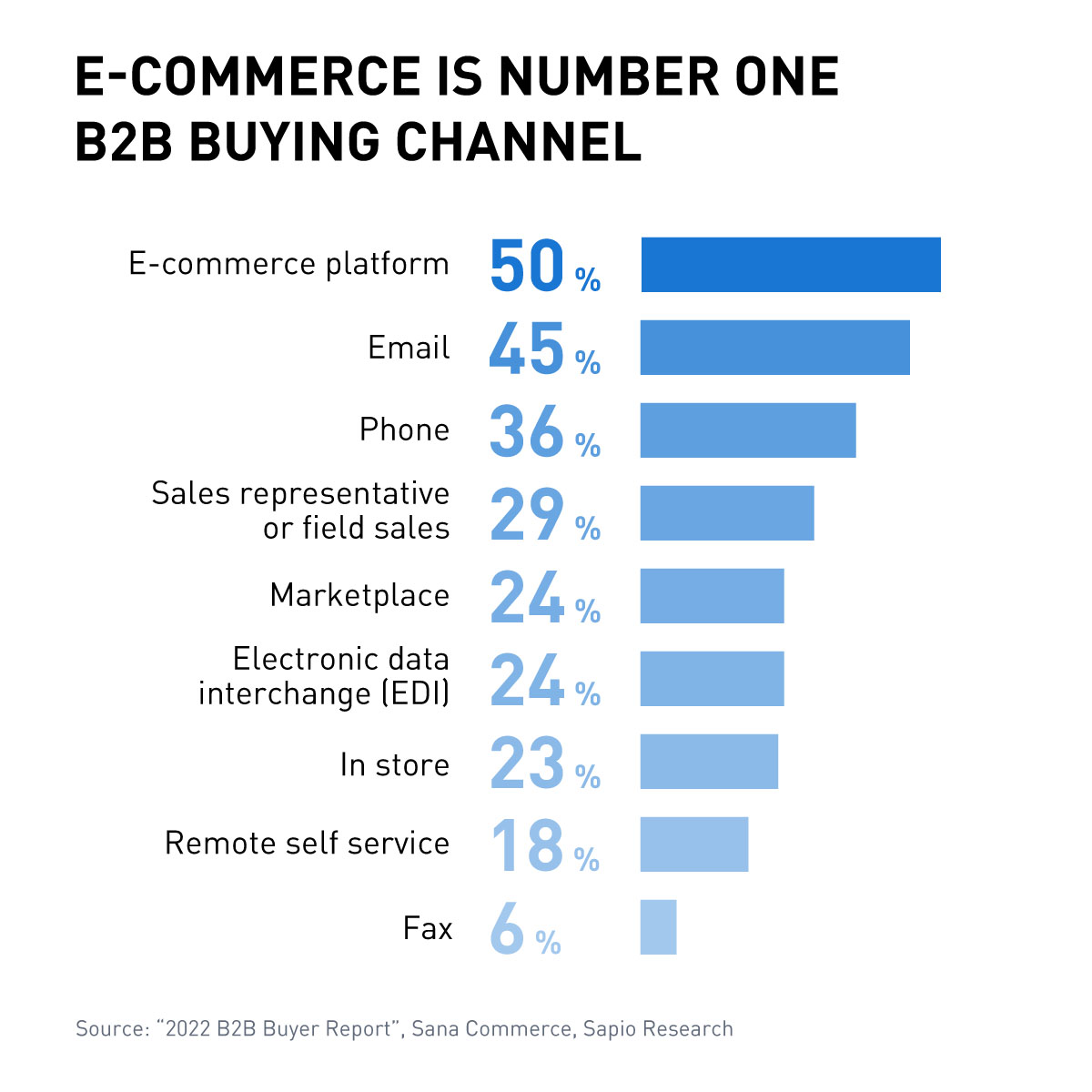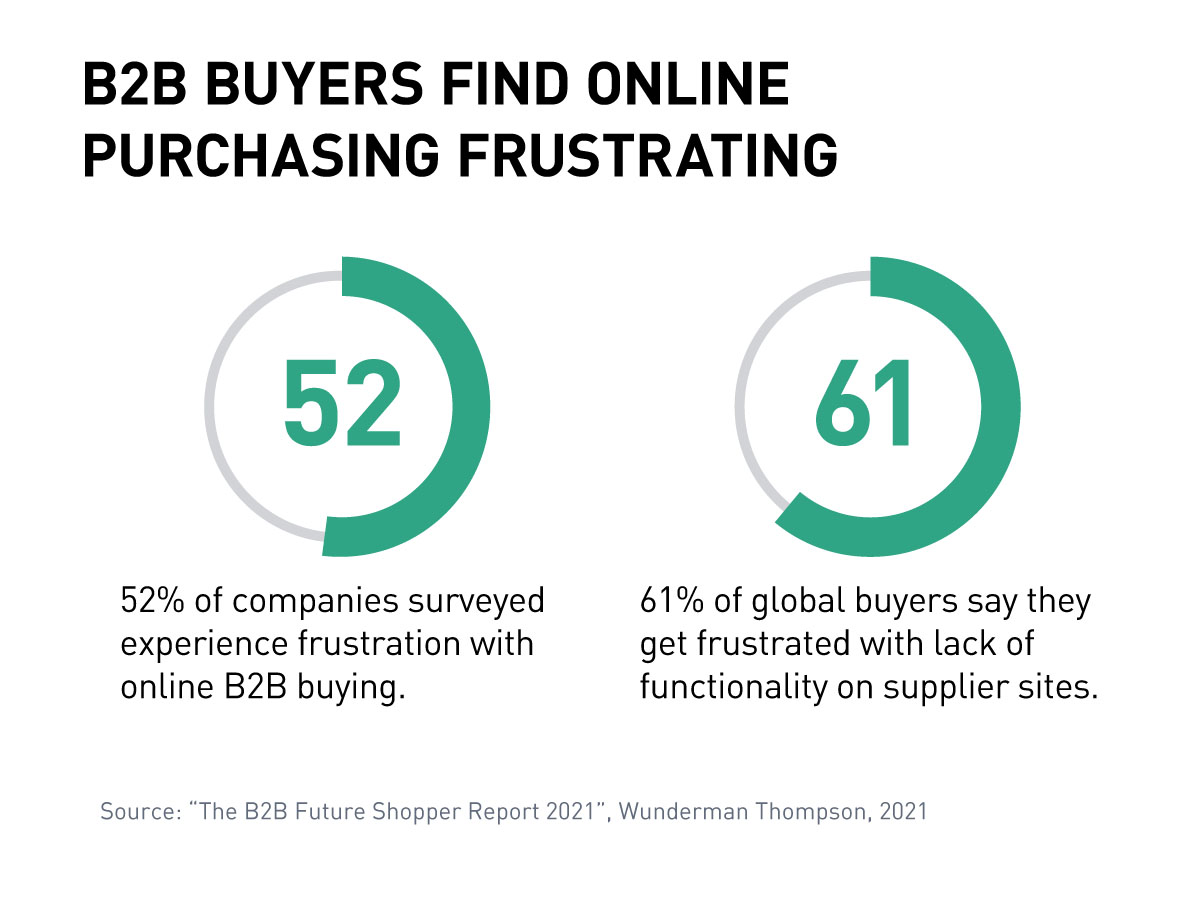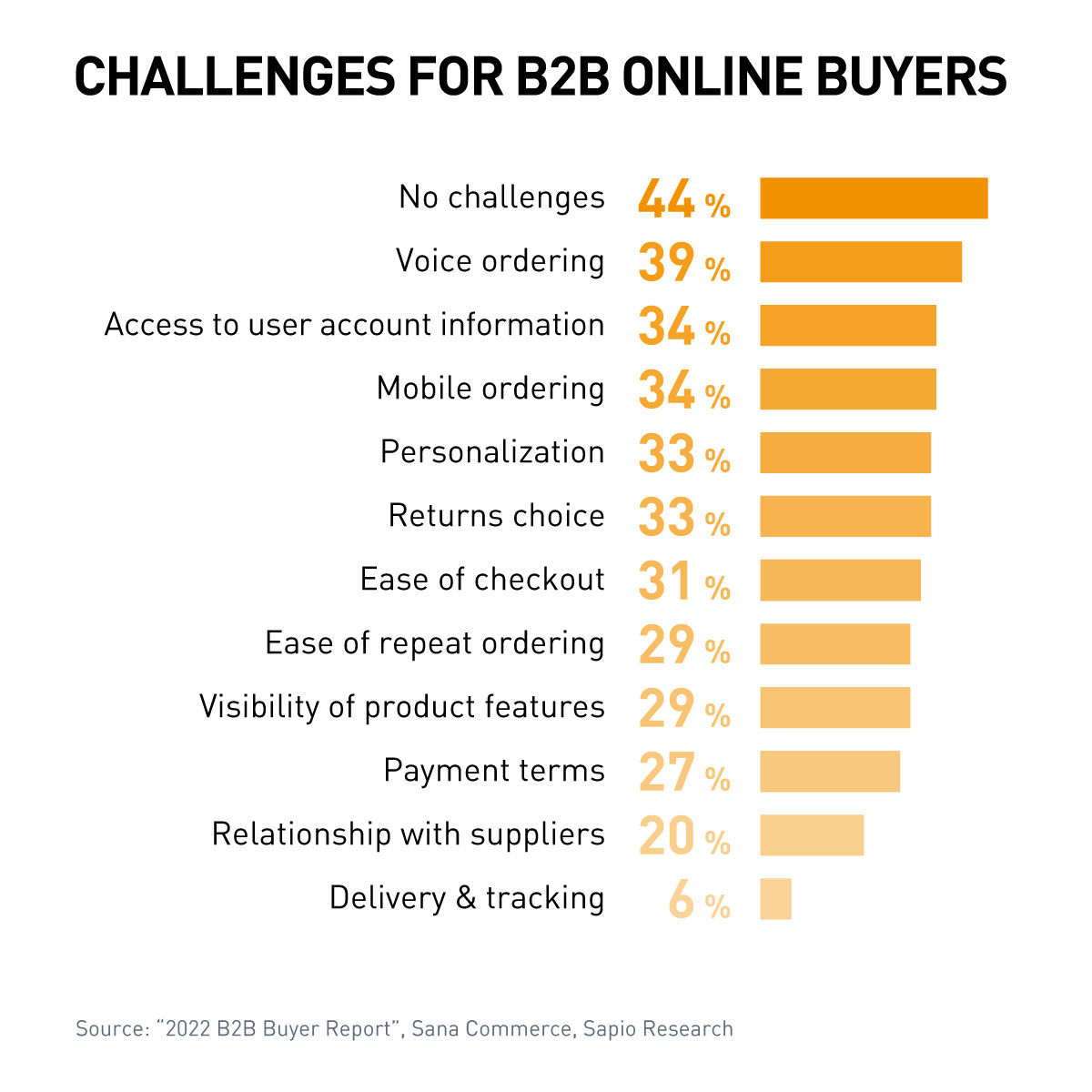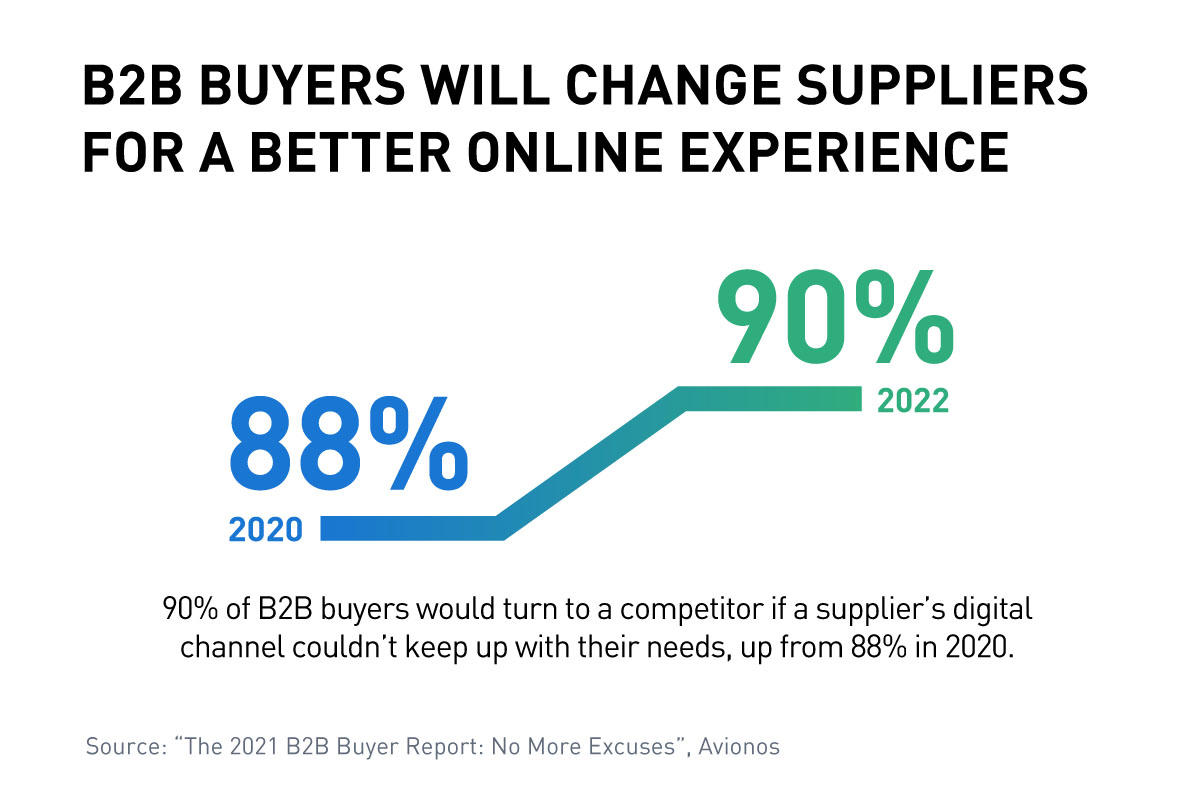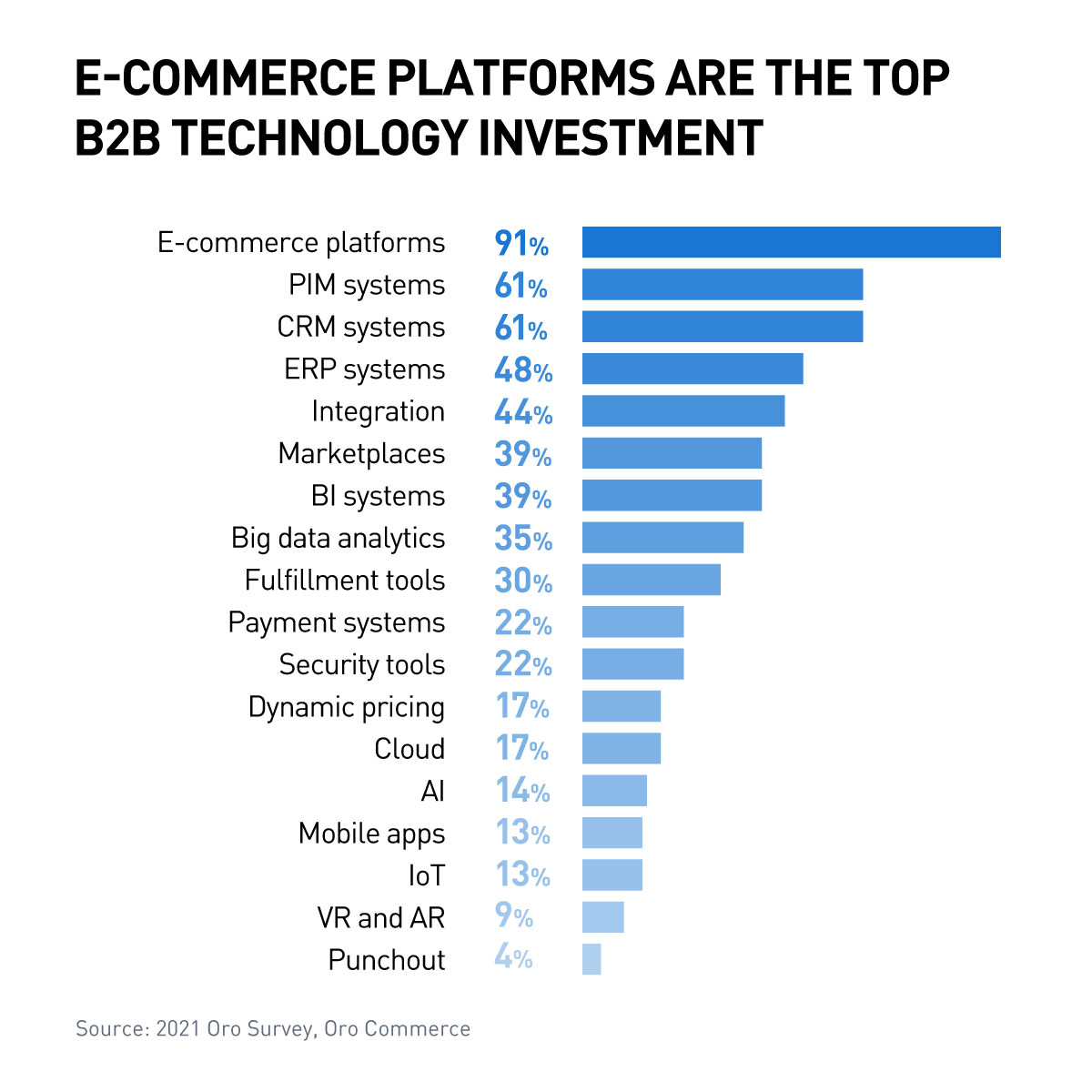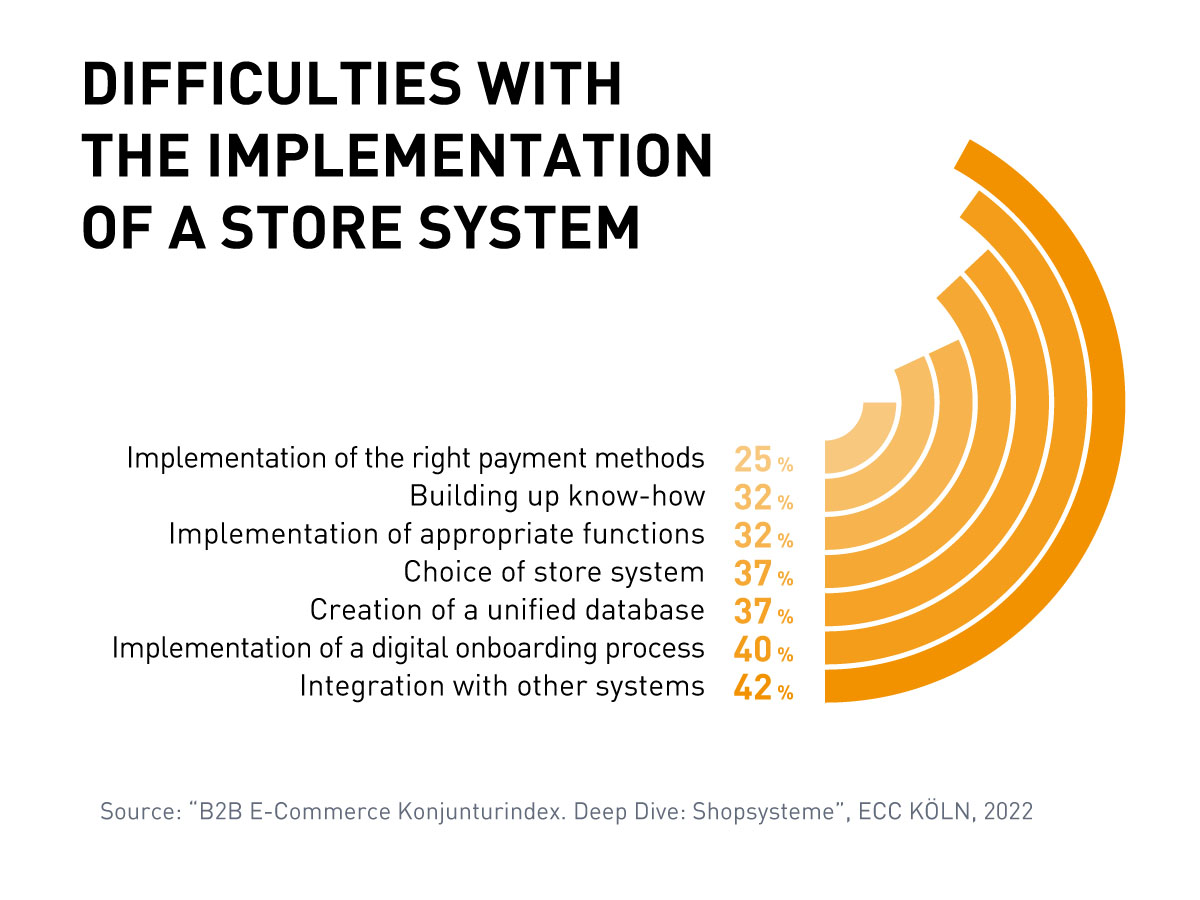
B2B E-commerce — Reality Falls Short of Expectations
Digital transformation is increasingly raising B2B buyers’ expectations for their e-commerce experience.
For the first time ever, e-commerce has become the number one channel for B2B purchases.
Already half of B2B buyers say they regularly use online stores to place orders, compared to only 28% two years ago. E-commerce now outperforms email, phone and even sales reps as the most popular channel.
This makes it all the more surprising how much this channel is still neglected in many companies.
The main reason lies in the unsatisfactory condition of today’s B2B portals. You can hardly find a B2B buyer who has not encountered some issues with their online shopping experience.
Most of the frustration comes from insufficient or missing features, such as the ability to track deliveries, up-to-date and comprehensive product descriptions, an intuitive checkout, the ability to repeat orders, or easy access to order history and account information.
One costly result of customer dissatisfaction is switching suppliers. 90% of B2B buyers say they would turn to a competitor if a supplier’s digital channel did not meet their needs. And in practice, most actually do. Over a half of businesses (53%) have switched suppliers for all purchases in the last 12 months. (1)
Therefore, a key consideration for B2B sellers today is no longer just to have an online store, but to offer the best possible CX online. And that requires investments in technology.
More and more B2B sellers seem to understand this, making digital commerce tech one of their priorities, with investments in e-commerce software at the forefront.
However, the high level of customer frustration indicates that even with the right software solution, B2B companies often fail to implement it properly.
The biggest challenge turns out to be integration with other systems. And without it, self-service, automation or providing a consistent experience across all channels is not possible.
These challenges can be solved best with an experienced service provider who specializes in B2B portals.
—————
(1) Source: “The B2B Future Shopper Report 2021”, Wunderman Thompson, 2021
Here is more great content you might like:
BLOG
B2B e-commerce supports sales reps instead of replacing them
Many traditional salespeople in B2B companies have reservations about e-commerce because they perceive the digital sales channel as competition. Yet it can be their most useful tool.
GUIDES
E-commerce solution selection
Download our two free guides to get an in-depth analysis of the key factors behind choosing the best technology solution for your e-commerce platform.
E-BOOK
B2B commerce – more than just an online shop
To meet the expectations of business customers, B2B platforms should include multiple functionalities and capabilities that cannot be found in online retail stores.
BLOG
How to equip your e-commerce platform for B2B success
An increasing number of business customers prefers online channels for purchasing and customer service. And you should be well prepared in order to keep up.
CASE STUDY
Enabling B2B customer self-service
By installing simple, step-by-step self-service functions and comprehensive process automation, Hilti has succeeded in significantly reducing the workload of its customer service staff.
BLOG
10 aspects to consider when choosing an e-commerce solution
Deciding on the right technology is the first important step in planning a new e-commerce site.

